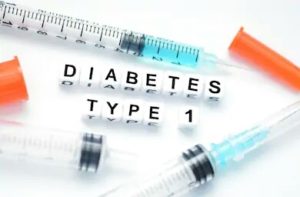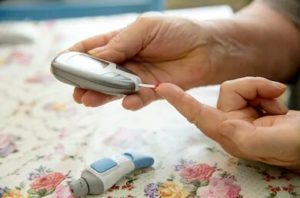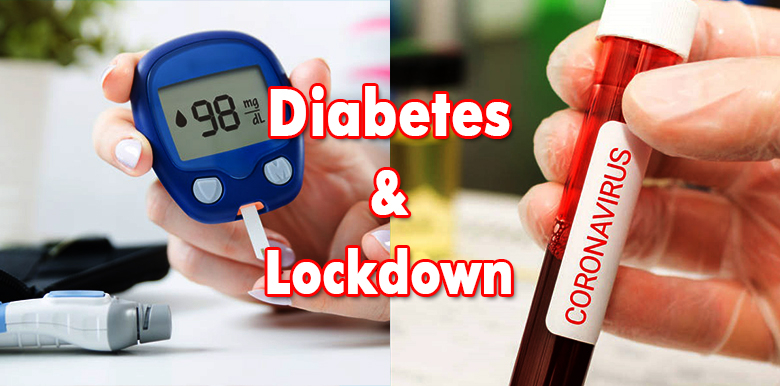Diabetes is a disease that occurs when your blood glucose, also called blood sugar, is too high. Blood glucose is your main source of energy and comes from the food you eat. Insulin, a hormone made by the pancreas, helps glucose from food get into your cells to be used for energy.
The three main types of diabetes are:
1. type 1 diabetes
2. type 2 diabetes
3. gestational diabetes
What causes diabetes?
1. Type 1 diabetes

Type 1 diabetes
Type 1 diabetes is believed to be an autoimmune condition. This means your immune system mistakenly attacks and destroys the beta cells in your pancreas that produce insulin. The damage is permanent.
What prompts the attacks isn’t clear. There may be both genetic and environmental reasons. Lifestyle factors aren’t thought to play a role.
2. Type 2 diabetes

Type 2 diabetes
Type 2 diabetes starts as insulin resistance. This means your body can’t use insulin efficiently. That stimulates your pancreas to produce more insulin until it can no longer keep up with demand. Insulin production decreases, which leads to high blood sugar.
The exact cause of type 2 diabetes is unknown.
Contributing factors may include:
genetics
lack of exercise
being overweight
There may also be other health factors and environmental reasons.
3. Gestational diabetes

Gestational diabetes
Gestational diabetes is due to insulin-blocking hormones produced during pregnancy. This type of diabetes only occurs during pregnancy.
What are the symptoms?
General symptoms of diabetes include:
1. excessive thirst and hunger
2. frequent urination
3. drowsiness or fatigue
4. dry, itchy skin
5. blurry vision
6. slow-healing wounds
Why?
While Coronavirus, as a disease requires all people to take health into their hands and not risk it, with an acute condition like diabetes, it becomes all the more important to take neccessary precautions.
Your body’s as healthy as your immune system is. When a person suffers from diabetes, it doesn’t just simply affect the body’s blood glucose levels but also compromises the insulin production levels in the body. When it goes for a spin, it can have lasting complications, especially on the immunity. People with high or unmanaged blood sugar levels have less than normal blood flow, which makes it difficult for the body to harness nutrients, natural defences meant to protect the body against several infections and promote healing. Hence, it usually takes a little longer than usual for people with diabetes to recover as well. It makes them vulnerable to other disease which can attack their immune system.
Because of their weakened immune system, people with diabetes are more likely to develop infections and chronic risks than those without diabetes. Studies have now also shown that even elevated blood levels can make people prone to experience risky outcomes, infections, longer hospitalization and prolonged recovery time.
What do to?
With a rising number of cases, it is crucial that you practice good hygiene, quarantine and social distancing to lower down the risk of infection. If you have a medical history of suffering from diabetes (or have a loved one suffering from the same), follow vital guidelines. For diabetics and people suffering from chronic illness, social distancing is most important as they have to be extra stringent and avoid mass gatherings and crowded places.
Diabetic patients must make sure to check blood sugar levels regularly and increase the frequency in case of an active COVID-19 infection since any symptom can possibly flare up blood glucose levels.
As with any disease, early detection can prevent future problems. People with diabetes should always pay attention to any changes in their bodies that could signal an infection. Be aware of all the symptoms associated with COVID-19 and act smartly.
Diabetic patients suffering from any viral disease must also be attended to at once because the pre-existing condition can make it difficult for the body to beat the infection naturally, if not taken care of in time and manifest into severe complications such as pneumonia and kidney failure (which have been linked to COVID-19 deaths). The immune system is already compromised, which makes it easier for viruses to thrive in the body amidst high blood glucose levels. Plus, with bad inflammation levels, it can also compromise your diabetes diagnosis. The risk exists for people suffering from both Type-1 and Type-2 diabetes.
At the same time, it is also important you do not miss out on any of your medicines or prescriptions and stock up on medicines for up to a month. If you suspect that you are suffering from any of the symptoms associated with COVID-19, make sure to tell the medical professional about your case history and the medications you are taking.
Watch out for these risk factors:
In a condition like diabetes, even minor health risks can prove costly. Since blood sugar levels can be brittle during this phase and impact immunity, make sure you drink plenty of fluids and prevent dehydration.
It is also important that you take care of and avoid minor cuts and bleeds. Foot hygiene, along with hand hygiene should not be ignored at this vulnerable time. Meticulous skin care can ensure that cuts and bleeds do not turn into major infections which impact blood flow.
Lastly, do not treat this as a time to ignore lifestyle modifications- sleep well, exercise well (even if at home) and eat right, all of which can help keep your immunity healthy.
